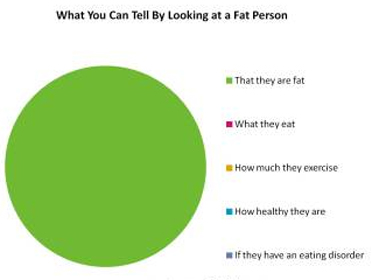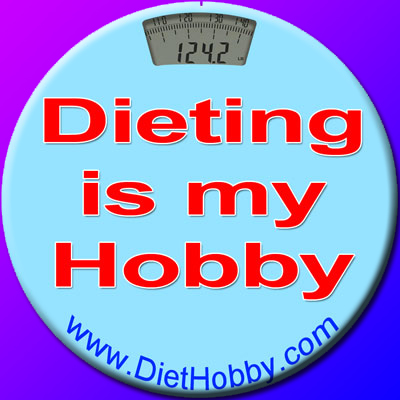Sometimes it's Best to Choose A Different Way
- POSTED ON: Sep 07, 2014

Freedom of Choice
- POSTED ON: Jun 20, 2014
The freedom of thought, conscience and opinion are subject to no real restriction. Each and every person is free to think what he or she likes without fear of outside interference, so long as his or her opinions remain private.

Freedom of choice describes a person's opportunity and autonomy to select an action from at least two available options, without being limited or restricted by others.
The freedom to make our own choices is a very important issue in our society. Every day, each of us chooses to do the things that we do, unless we are in a situation where we have been stripped of our freedom, and then we must do as those who have control over us command us to do.
![]() This would be the case of those in prison or those who are enslaved by force in repressive societies. Even in those circumstances people still have freedom to make certain limited choices. For example, one can choose what kind of attitude and response to have toward one's oppressors.
This would be the case of those in prison or those who are enslaved by force in repressive societies. Even in those circumstances people still have freedom to make certain limited choices. For example, one can choose what kind of attitude and response to have toward one's oppressors.
![]() Individual freedom of choice can sometimes be restricted through social control.
Individual freedom of choice can sometimes be restricted through social control.
Social control refers to the way that society or government regulates individual and group behavior in order to get people to conform and comply with its specific rules.
One form of social control is the internalization of norms and values by a process known as socialization. People learn social values through exposure to society's customs, norms, and mores. Marketing and advertising industries have become very influential in establishing social values. Society uses shame, ridicule, sarcasm, criticism, and disapproval to punish individuals for behavior that it considers unacceptable.
![]()
The other form of social control is through external sanctions enforced by government to regulate society.
 We live in a culture that tells us that our bodies are not good enough and never will be, but this does not dissolve our individual freedom of choice.
We live in a culture that tells us that our bodies are not good enough and never will be, but this does not dissolve our individual freedom of choice.
No person or entity ![]() has the right to intervene in the most basic and private aspects of the adult lives of others.
has the right to intervene in the most basic and private aspects of the adult lives of others.
![]() In a free society, people are entitled to live their personal lives as they deem fit, absent clear and direct harm to others.
In a free society, people are entitled to live their personal lives as they deem fit, absent clear and direct harm to others.
It is important to respect the private choices of individuals and to respect their individual freedom. Some lines should never be crossed, and this certainly includes seeking to control what and how other people choose to eat.
The diet industry knows that biology dictates that almost everyone can lose weight short term and almost everyone will gain it back long term, and they’ve done a tremendous job of taking credit for the first part and blaming their client for the second part ... though neither is accurate.
![]() Nobody wants to be fat. In most modern cultures, even if you are healthy, to be fat is to be perceived as weak-willed and lazy. However, no one owes society a thin body. Fat people have the right to exist, in fat bodies, without shame, stigma, bullying or oppression. It doesn’t matter why anyone is fat, what being fat means, or if one could be thin by some means however easy or difficult. Even if every study of weight loss showed that every person who tried to lose weight was completely successful by whatever definition, fat people would still have the right to exist.
Nobody wants to be fat. In most modern cultures, even if you are healthy, to be fat is to be perceived as weak-willed and lazy. However, no one owes society a thin body. Fat people have the right to exist, in fat bodies, without shame, stigma, bullying or oppression. It doesn’t matter why anyone is fat, what being fat means, or if one could be thin by some means however easy or difficult. Even if every study of weight loss showed that every person who tried to lose weight was completely successful by whatever definition, fat people would still have the right to exist.
Health is multi-dimensional and includes things in our control and things out of our control such as genetics, environment, access, stress and behaviors, and being healthy is not the same as being thin. There are healthy and unhealthy people of every shape and size.
Furthermore, one's health is nobody else’s business. ![]() Nobody is obligated to choose "healthy" habits, by any definition. It’s none of anybody else’s business how highly someone prioritizes their health or what their habits are. No one owes anybody else “healthy” no matter what size they are.
Nobody is obligated to choose "healthy" habits, by any definition. It’s none of anybody else’s business how highly someone prioritizes their health or what their habits are. No one owes anybody else “healthy” no matter what size they are.
![]() Despite my personal preferences, just as I get to choose what I believe and what I do, others are allowed to run with their own prejudices, stereotypes of pre-conceived notions about fat people, body size, as well as what they think constitutes an eating disorder. Every adult person, no matter how ignorant or biased, gets to choose the intimate details of his/her own life.. absent clear and direct harm to others.
Despite my personal preferences, just as I get to choose what I believe and what I do, others are allowed to run with their own prejudices, stereotypes of pre-conceived notions about fat people, body size, as well as what they think constitutes an eating disorder. Every adult person, no matter how ignorant or biased, gets to choose the intimate details of his/her own life.. absent clear and direct harm to others.
![]() During this past century, medical professionals have commonly believed that fat people have a “perverted appetite”. In the 1960s, medical experts were influenced by modern marketing and public relations techniques to re-label this negative judgment in less demeaning terms, and they began referring to various appetite issues surrounding obesity as "Disordered Eating". This resulted in the label, "Eating Disorder" and further, ongoing, classificationss of specific food behaviors as Anorexic, Bulimic, Binge Eating, and (lest any fat-related eating behavior escape) ...the catchall category.. Eating Disorders Not Otherwise Specified (EDNOS).
During this past century, medical professionals have commonly believed that fat people have a “perverted appetite”. In the 1960s, medical experts were influenced by modern marketing and public relations techniques to re-label this negative judgment in less demeaning terms, and they began referring to various appetite issues surrounding obesity as "Disordered Eating". This resulted in the label, "Eating Disorder" and further, ongoing, classificationss of specific food behaviors as Anorexic, Bulimic, Binge Eating, and (lest any fat-related eating behavior escape) ...the catchall category.. Eating Disorders Not Otherwise Specified (EDNOS).
By the 1970s, behavioral treatments emerged involving ways to make the Fat eat like the Lean. Even though none of those therapies has every been shown to work long-term, many of them are still with us. In fact, today, most of the leading authorities on obesity are now psychologists and psychiatrists, who have expertise involving the ways of the mind, but little or no expertise about the ways of the body.
![]() The Diet, and Non-Diet, Marketing Interests … including the medical profession… have achieved a great deal of Social Control as a result of labeling a very large range of various eating behaviors with the term "Eating Disorder." For more about that subject see: Eating Disorders Revisited.
The Diet, and Non-Diet, Marketing Interests … including the medical profession… have achieved a great deal of Social Control as a result of labeling a very large range of various eating behaviors with the term "Eating Disorder." For more about that subject see: Eating Disorders Revisited.
As an exercise of my own personal Freedom of Choice, I am against the dominant thinking of our Society. My position is that all adult people have the right to make their own individual eating choices, which includes what and how much they choose to eat, as well as all other aspects of their own eating behavior, and that those choices are no one else's business. Despite anyone's individual body size ... whether it is thin, normal, or obese ... I believe that every adult person has the right to engage in any type of dieting or non-dieting food behaviors that he/she chooses …. no matter whether others consider those behaviors to be "healthy" or "unhealthy.

Looking at a Fat Person
- POSTED ON: Jun 14, 2014

That's it.
Looking at a Fat Person tells us the person is Fat.
NOTHING Else.

Do Diets Work?
- POSTED ON: Aug 02, 2012
Diets and dieting is often an emotionally charged topic. Everyone has an opinion, and most people are interested in sharing theirs. Even "experts" have different perspectives and many of them are quite evangelistic about their own beliefs on the subject.
There is now a rather popular viewpoint fostered by some Therapists and Nutritional experts who say that "Diets don't work"; that "Diet head is a bad thing"; and that "Dieting is one of the primary causes of eating disorders".
Do Diets Work?
My own position is that If a person eats food, and that person is alive, that person is on a diet that works. The frequency of eating, the amount eaten, and the micronutrients of the food eaten are all just factors of various diets. For more about those factors, read my articles:
The Essence of Diets Part One, and
The Essence of Diets Part Two.
What is "Diet head" and is it a bad thing?
The basic essence of the term, diet head simply involves thinking about what and how one is eating. I, personally, see this as a very positive thing, and have chosen to make Dieting one of my Hobbies. For more about that perspective read my article:
"Diet head" is a vague and negative term coined by "experts" who hate the concept of restricting eating. When I Googled it, I couldn't find it in any dictionary, even the current "slang" ones.
Does Dieting cause eating disorders?
That's an enormous question, because first one would have to agree with current definitions of exactly what an "eating disorder" is, and I don't. Next, since everyone is on a diet (because everyone alive eats food sometimes), unless everyone has an eating disorder Dieting couldn't cause it.
That subject of "eating disorders" and what causes them, is far too broad for me to cover here, and I will be addressing it in future articles.
![]() So, starting with the Basic premise of Diet, opinions are divided from that point on. Each of us moves and breathes and thinks and behaves independently. I see the subject of How and What one eats, as one of the most personal issues in life.
So, starting with the Basic premise of Diet, opinions are divided from that point on. Each of us moves and breathes and thinks and behaves independently. I see the subject of How and What one eats, as one of the most personal issues in life.
In this DietHobby website, I talk about that issue and I share about how it relates to me personally. One primary belief that I share here, is that It's not a one-size-fits-all world; that there is no one "right" way for everyone, and that finding a way of eating that is "right" for one is part of one's individual life journey which can be both valuable and entertaining.
Study of Literature on Weight-Loss Maintenance
- POSTED ON: Mar 16, 2012
![]()
I've been feeling frustrated by my current maintenance results, a web search about that issue turned up an article about a study of literature on the subject, which I found interesting, even though it wasn't particularly helpful to me.
Below is part of that article, originally published in Medscape on 1/6/2012
Psychological Factors Influencing Weight Loss Maintenance
Background.
It is well recognized that most individuals who lose weight are unable to maintain that weight loss. However, the lack of evidence about the factors that cause this regain is surprising. The purpose of this study was to review the available literature to try and identify the factors that are most consistently linked with weight regain and propose strategies to assist patients to maintain their success.
Methodology.
An electronic search identified studies of patients whose weight loss had been achieved through behavior modification and who were then followed for the subsequent 12-18 months. Included studies were determined to have good methodological rigor and relevant data.
Results.
The literature on factors potentially contributing to weight regain were examined and clustered into 8 categories:
1. Unrealistic weight loss expectations -- studies were mixed and it cannot be concluded that this issue is a consistent predictor of weight regain.
2. Failure to achieve weight loss goals -- satisfaction with one's initial weight loss was identified to be an important factor. Those able to reach their goal weight or, alternatively, those who were satisfied with their weight loss even if it was less than their original goal were more likely to maintain this loss.
3. Dichotomous thinking -- this is defined as a "black or white" thinking pattern that leads to difficulty in accepting anything less than the original goal. This type of thinking pattern was strongly predictive of unsuccessful weight maintenance.
4. Eating to regulate mood -- another strongly predictive factor identified in this review was use of food to relieve emotional distress.
5. Disinhibition vs dietary restraint -- higher levels of disinhibition, which led to more uncontrolled eating, were associated with weight regain. In contrast, those able to maintain weight loss were better able to exercise restraint in their eating.
6. Perceived cost vs benefit -- individuals able to successfully maintain weight loss continue to find that the benefits of weight loss, whether defined as improved appearance, better health, or some unique combination of benefits, outweighed the perceived costs of weight maintenance strategies such as regulation of diet or exercise.
7. Depression -- although depression has clearly been linked to obesity, its relationship to successful weight loss maintenance is less clear. Baseline depression was not necessarily a factor, but increasing levels of depression over the time of weight maintenance did predict regain.
8. Body image -- no surprise, individuals who were more satisfied with their appearance, with steady improvement in body image throughout the time period studied, were more likely to maintain their weight loss.
None of this is really news, but it's worth thinking about again. I found their Viewpoint summary to be rather standard and uninteresting. I found the following statement particularly uninspiring….
"A number of factors associated with unsuccessful weight maintenance
are the same as those seen in patients with binge eating disorder."
![]() Like DUHHHH!! Don't even get me started on what I think about the way every single "non-healthy" eating behavior is now being labeled an "eating disorder".
Like DUHHHH!! Don't even get me started on what I think about the way every single "non-healthy" eating behavior is now being labeled an "eating disorder".
Uh Oh, ![]()
I think my frustration is clearly showing here again, and so now I'm going to spend some time working on my Positive Thinking.
<< Newest Blogs << Previous Page | Page 3 | Page 4 | Page 5 | Page 6







